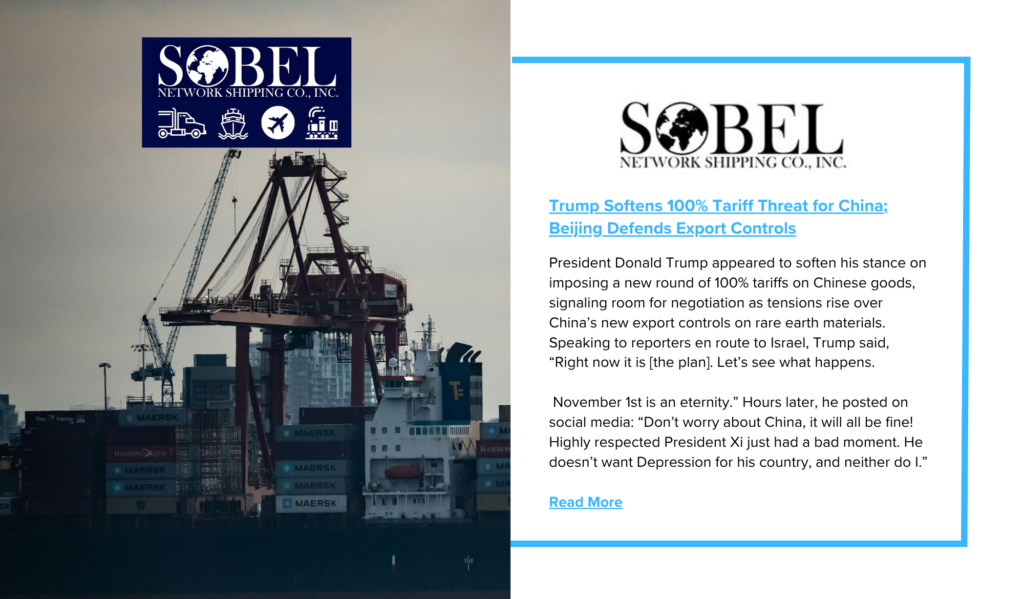President Donald Trump appeared to soften his stance on imposing a new round of 100% tariffs on Chinese goods, signaling room for negotiation as tensions rise over China’s new export controls on rare earth materials.
Speaking to reporters en route to Israel, Trump said, “Right now it is [the plan]. Let’s see what happens. November 1st is an eternity.” Hours later, he posted on social media: “Don’t worry about China, it will all be fine! Highly respected President Xi just had a bad moment. He doesn’t want Depression for his country, and neither do I.”
Trump’s comments come just days after China introduced sweeping new export control measures on rare earth minerals—critical inputs for global technology and defense industries. The controls also restrict Chinese citizens from working overseas on rare earth projects without government approval.
Treasury Secretary Scott Bessent, one of the administration’s lead negotiators, called the timing “provocative” and said Washington had believed tensions were easing. “We had substantially de-escalated,” he said on Fox Business.
China’s Ministry of Commerce, however, framed the move as a response to a rapid succession of U.S. restrictions. The ministry cited the U.S. Entity List, the expansion of the Affiliates Rule, and ongoing Section 301 actions targeting China’s maritime and shipbuilding sectors as evidence of “U.S. discrimination and long-arm jurisdiction.”
In a statement, Beijing emphasized that its export controls were not bans, but measures to ensure rare earths are used responsibly. “Licenses will be granted for eligible civil applications,” it said, accusing Washington of “overstretching the concept of national security.”
U.S. Trade Representative Jamieson Greer described the move as “completely disproportionate.” He noted that the U.S. had agreed to keep tariffs low as long as China maintained open flows of rare earth materials. “Our agreement was: we will keep the tariffs low, if you keep the rare earths flowing,” he said.
Both Bessent and Greer confirmed that the planned meeting between Trump and Chinese President Xi Jinping during the APEC Summit in South Korea has not been canceled, despite earlier uncertainty.
Trade analysts see the next two weeks as pivotal. Some suggest China’s announcement was a preemptive positioning move ahead of talks. Sidley Austin’s Ted Murphy noted that the delay in U.S. tariff implementation until November 1st leaves “a window for cooler heads to prevail.”
Former USTR official Wendy Cutler offered a more sobering perspective, writing that Beijing’s assertive posture shows a shift from the dynamics of the first Trump administration. “The U.S. is now dealing with a more self-confident and less dependent China,” she said. “The past 24 hours leave no doubt that those days are over.”


